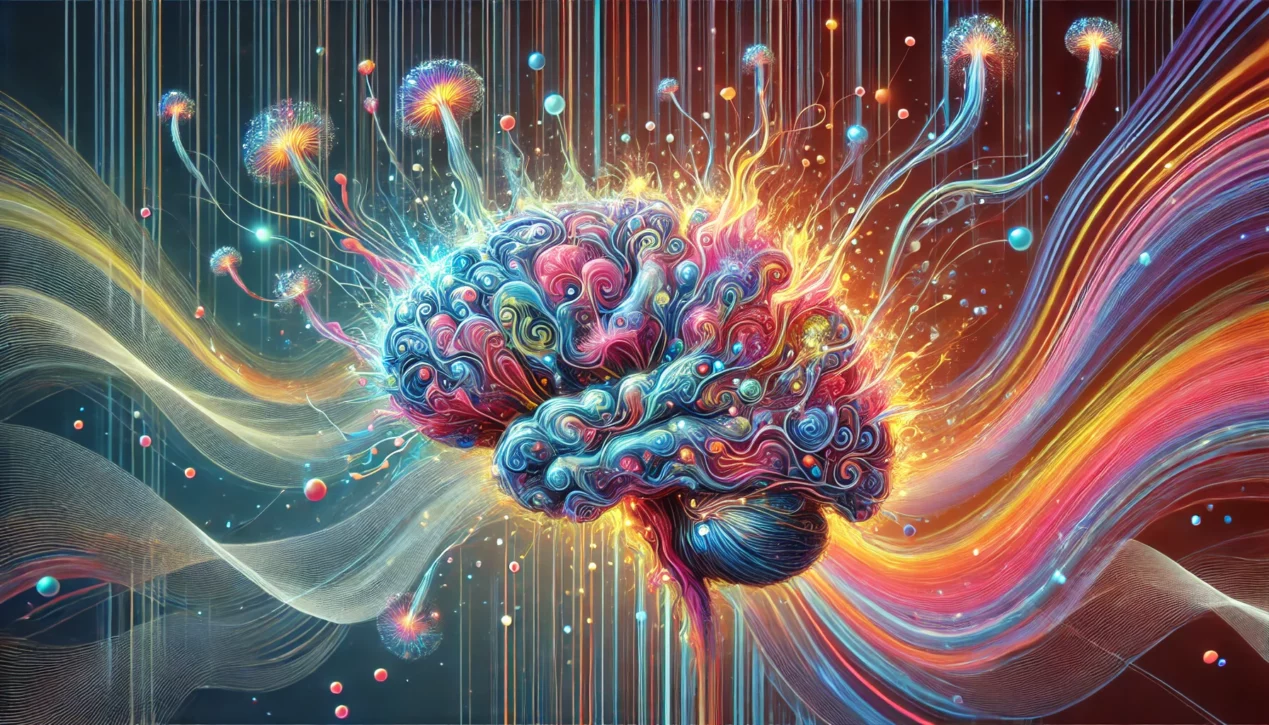Psilocybin, the psychedelic compound found in magic mushrooms, has once again proven its profound effects on the human brain. A recent study published in Nature by Dr. Joshua S. Siegel and his team at Washington University School of Medicine explores how a single high dose of psilocybin significantly disrupts and desynchronizes brain connectivity, potentially paving the way for novel therapeutic approaches to mental health.
The Experiment
The study employed an innovative approach known as precision functional mapping, involving extensive MRI sessions—about 18 per participant. This method enabled researchers to track individual-specific brain changes before, during, and after administering psilocybin (25 mg) and methylphenidate (40 mg), with a follow-up psilocybin dose 6-12 months later.
Key Findings
1. Massive Disruption of Brain Connectivity:
Psilocybin caused a threefold greater disruption in functional connectivity (FC) compared to methylphenidate. The most pronounced effects were observed in the default mode network (DMN), a crucial brain network associated with our sense of self, space, and time.
2. Desynchronization Across Brain Networks:
The disruptions were characterized by brain desynchronization across various spatial scales, reducing correlations within networks and anticorrelations between networks. This desynchronization suggests a breakdown in the typical patterns of brain activity, leading to a state of increased entropy or randomness.
3. Persistent Effects:
Interestingly, the study found that psilocybin-induced changes in FC between the anterior hippocampus and DMN persisted for weeks. This prolonged decrease in connectivity could be linked to the therapeutic effects observed in clinical trials for conditions like depression and anxiety.
4. Subjective Experiences and Brain Changes:
There was a strong correlation between individual differences in FC changes and the subjective psychedelic experience. The intensity of mystical experiences, measured using the Mystical Experience Questionnaire (MEQ30), was closely linked to the degree of brain network desynchronization.
Therapeutic Implications
The findings shed light on the potential mechanisms underlying the therapeutic effects of psychedelics. The persistent decrease in hippocampal-DMN connectivity, for instance, could represent a neuroanatomical correlate of the proplasticity and therapeutic effects of psilocybin. This aligns with previous animal studies showing increased synaptogenesis and neuroplasticity in the cortex and hippocampus following psychedelic exposure.
The Bigger Picture
The research offers a promising glimpse into how psychedelics can be harnessed to treat mental health disorders. By disrupting the brain’s usual patterns of connectivity, psilocybin might “reset” dysfunctional neural circuits associated with depression, anxiety, and other conditions. However, the study also underscores the need for further research, particularly in clinical settings, to fully understand and optimize these effects for therapeutic use.
Conclusion
Dr. Siegel and his team’s groundbreaking work provides valuable insights into the profound and lasting effects of psilocybin on the human brain. As the scientific community continues to unravel the complexities of psychedelic substances, studies like this highlight their potential to revolutionize mental health treatment, offering hope to millions suffering from debilitating conditions.
References:
- Siegel, J. S., et al. (2024). Psilocybin desynchronizes the human brain. Nature. DOI: 10.1038/s41586-024-07624-5
For more in-depth information and access to the full study, visit Nature’s website.




